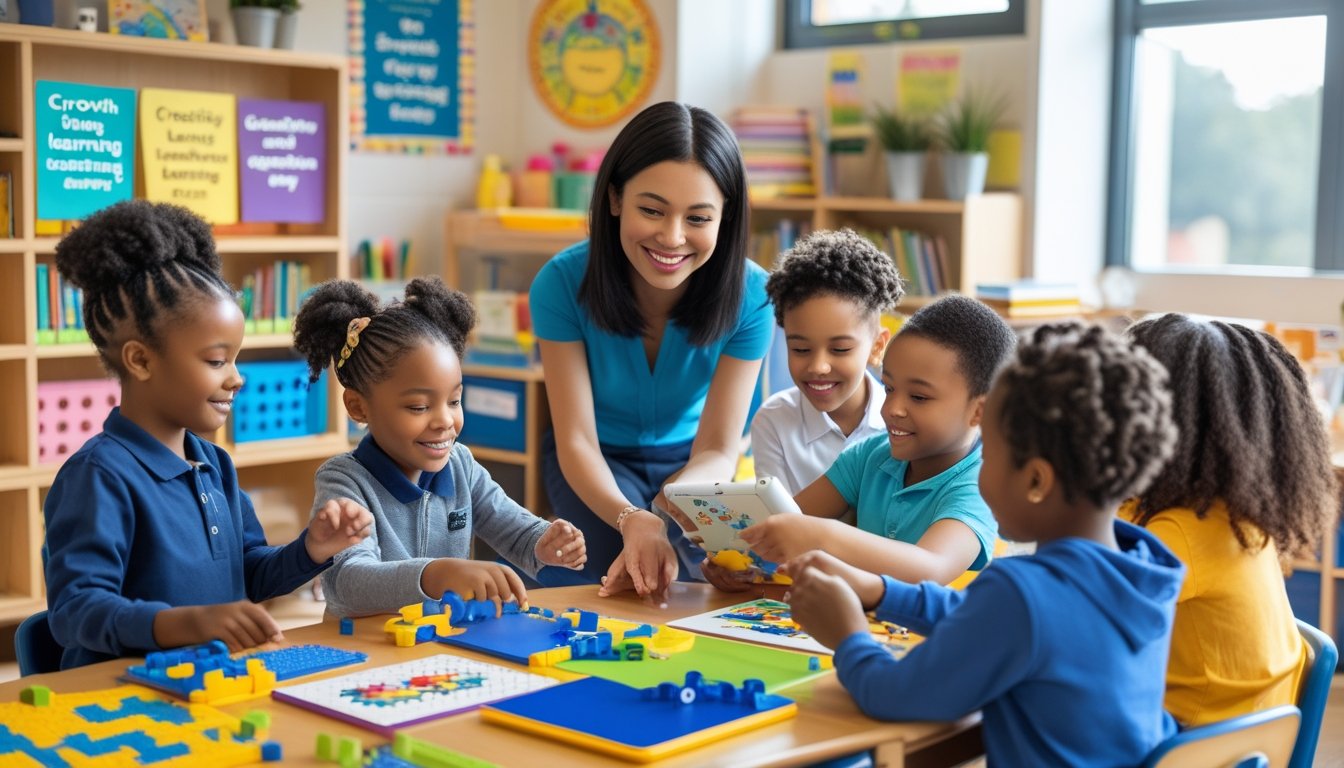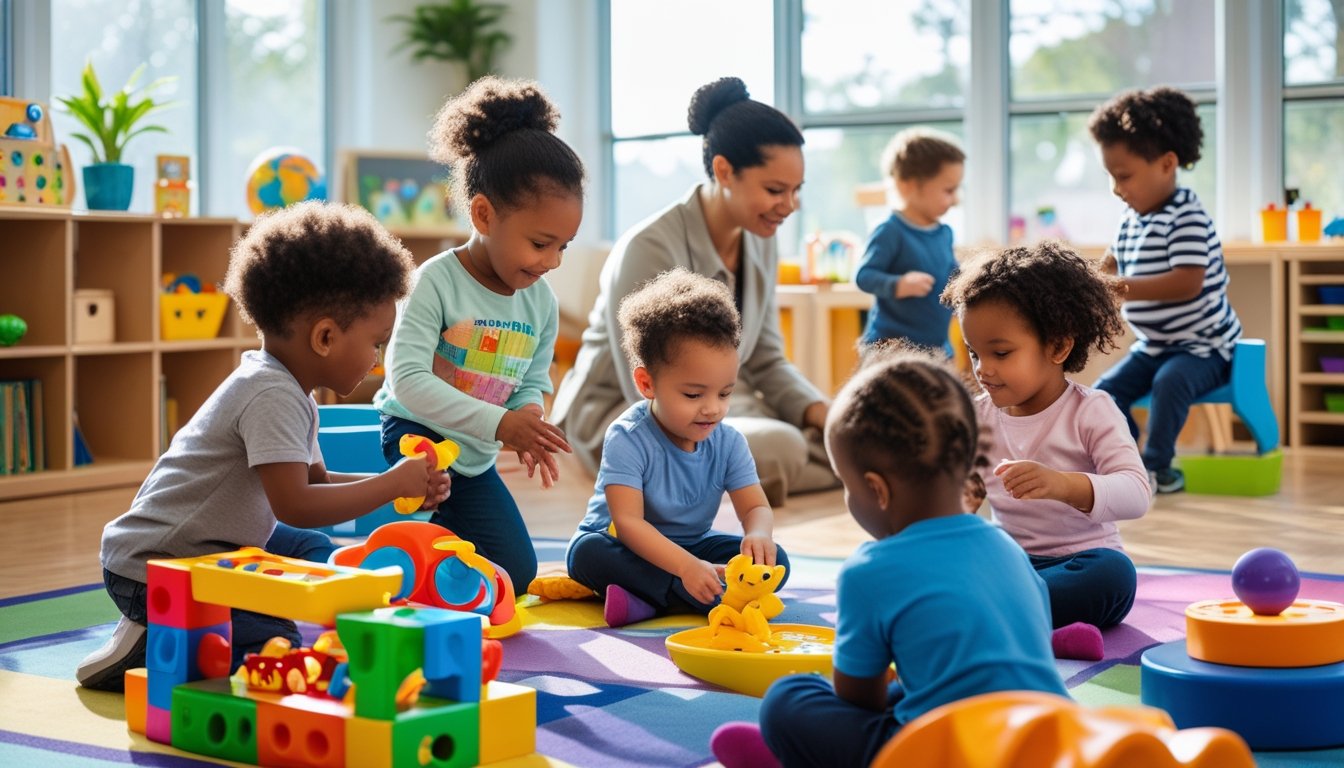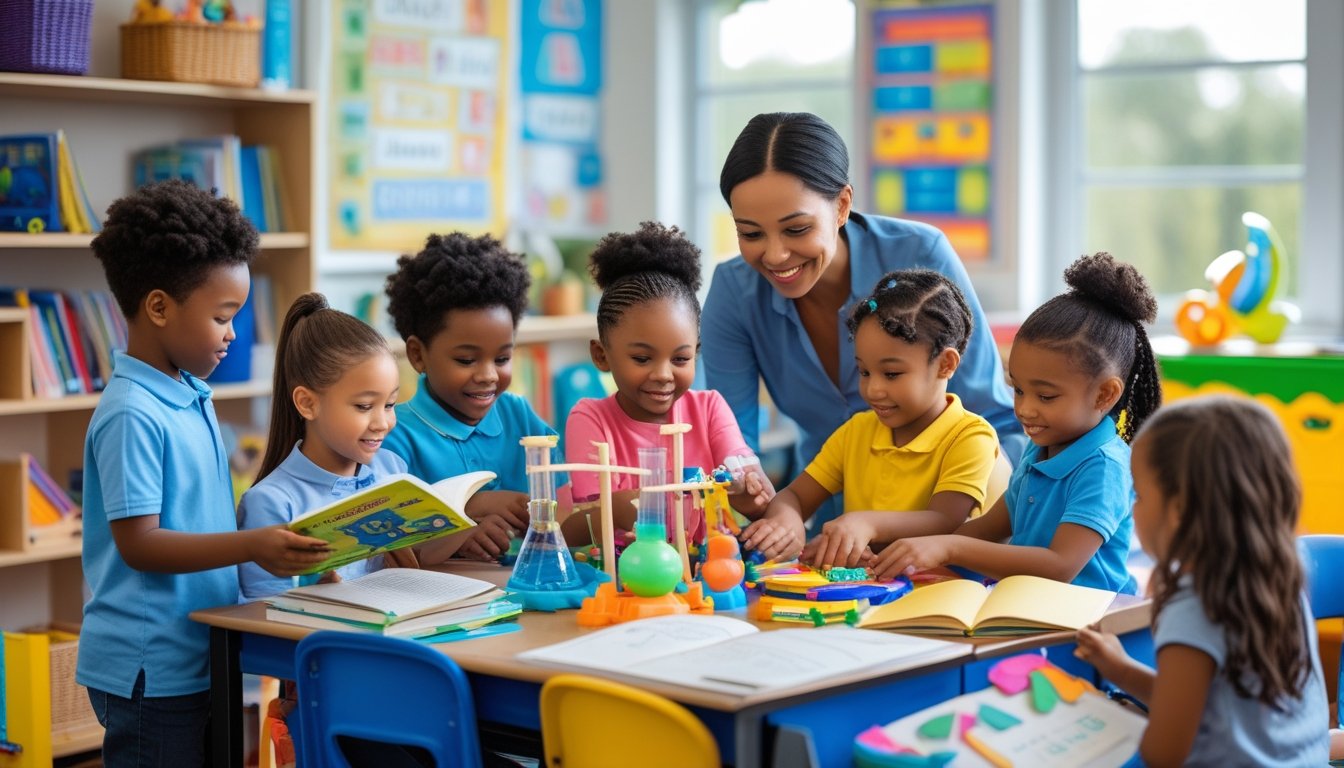Late updated: 10 Aug 2025 11:08
Written by:
Strategies For Encouraging Lifelong Learning In Children: Effective Approaches
In today’s rapidly changing world, ensuring our children embrace lifelong learning is more vital than ever. Fostering curiosity, independence, and a love for discovery equips children with the critical thinking and problem-solving skills necessary for their future success. Our role as parents and educators is to cultivate environments where this love for learning can flourish.

Children naturally exhibit a desire to explore and understand their surroundings. When we nurture this instinct, we help build a foundation that motivates them to seek knowledge throughout their lives. We can accomplish this by integrating learning into daily activities, encouraging questions, and modelling our own enthusiasm for acquiring new skills.
As we explore various strategies to encourage lifelong learning, we'll uncover practical approaches that integrate education seamlessly into a child's life. By adopting these methods, we can prepare our children not only for academic challenges but also for the broader journey of life.
Key Takeaways
- Encourage curiosity and independence in learning.
- Create stimulating environments that promote discovery.
- Integrate education into daily routines for lifelong benefits.
Key Strategies for Encouraging Lifelong Learning in Children
Nurturing a lifelong love for learning in children requires us to focus on fostering curiosity, integrating learning into daily life, and building literacy skills. Each of these elements plays a crucial role in creating an environment where continuous learning is valued and cherished.
Fostering Curiosity and a Growth Mindset
Curiosity serves as the engine for lifelong learning. Encouraging children to ask questions and explore answers nurtures their natural inquisitiveness. We must actively create spaces where children feel comfortable exploring their interests without fear of judgment.
A growth mindset can be cultivated by praising effort and perseverance rather than innate talent. This approach helps children view challenges as opportunities for growth. By focusing on the process rather than the end result, we inspire resilience and motivation.
Integrating Learning into Everyday Experiences
Turning daily activities into learning experiences allows children to see education as a natural part of their lives. Everyday tasks, like cooking or grocery shopping, can become lessons in maths, science, or social studies.
Embedding learning in routine activities helps demystify education and demonstrates its relevance. We can use games and playful activities to make learning enjoyable. By engaging children in this way, we promote continuous curiosity and discovery.
Building Literacy and a Love for Reading
Literacy is foundational for lifelong learning. Reading enhances vocabulary, comprehension, and critical thinking skills. Encouraging a love for reading starts with providing diverse and engaging materials tailored to a child's interests and reading level.
We must create environments that value and encourage reading. Shared family reading times and discussions about books can ignite a passion for stories and knowledge. By modelling love for reading ourselves, we can encourage children to develop their literacy skills naturally.
Supporting Social, Emotional, and Holistic Development

Engaging children in activities that foster social and emotional learning, as well as critical thinking, is essential for their overall well-being. By incorporating diverse methods, we can support children in embracing both their emotional and cognitive growth.
Incorporating Extracurricular Activities
Extracurricular activities play a vital role in a child's social and emotional development. By participating in clubs, sports, or artistic pursuits, children learn teamwork, resilience, and self-discipline. These activities encourage them to interact with peers and mentors, which can boost their self-esteem and communication skills.
Furthermore, extracurriculars can create an environment where children feel safe to express themselves and explore new interests. Activities such as drama clubs, debate teams, and sports provide opportunities to develop leadership skills and social interactions. These experiences are invaluable in shaping their ability to navigate diverse social settings.
Leveraging Educational Apps and Technology
In today's digital age, educational apps and technology offer innovative ways to support children’s development. Apps focused on social and emotional learning (SEL) can teach empathy, conflict resolution, and self-regulation. When utilised effectively, these tools make learning engaging and interactive.
Parents and educators can select apps that align with educational goals, ensuring that they provide meaningful content. Monitoring usage ensures children benefit without becoming overly reliant. Technology should supplement, not replace, personal interactions and traditional learning methods. By integrating these tools into daily routines, we can foster a balanced approach to development that merges technology with real-world experiences.
Developing Critical Thinking and SEL Skills
Developing critical thinking and SEL skills involves encouraging children to reflect on their experiences and emotions. We can promote critical thinking through problem-solving activities that challenge assumptions and encourage exploration of diverse perspectives. Games, puzzles, and group discussions are effective in sparking curiosity and analytical thinking.
Incorporating SEL techniques in everyday learning allows children to understand their emotions and those of others. Activities that involve recognising and naming emotions help children communicate better and develop empathy. By supporting these skills, we prepare children to handle complex social environments and build strong relationships, which are fundamental to their lifelong learning journey.
Frequently Asked Questions

Exploring how parents and educators can encourage a child's love for learning, the role of curiosity, the impact of guided play, and effective teaching approaches. We aim to provide specific strategies and examples for cultivating a lifelong learning mindset in children.
How can parents and educators instil a passion for lifelong learning in children?
Parents and educators can cultivate a love of learning by fostering an environment that values curiosity and exploration. Encouraging open-ended discussions and supporting interests that children express can lay the groundwork for a passion for knowledge.
What are effective methods to integrate lifelong learning into a child's daily routine?
Integrating lifelong learning into daily activities involves finding opportunities for learning in everyday situations. This might include involving children in planning activities, engaging them with puzzles, or encouraging them to ask questions about their surroundings.
Why is fostering curiosity essential in promoting lifelong learning for children?
Curiosity drives the desire to explore, ask questions, and seek knowledge. It leads to critical thinking and problem-solving skills, which are crucial for adapting to new situations and acquiring new skills throughout life.
In what ways can guided play contribute to a child developing into a lifelong learner?
Guided play provides a stimulating environment where children learn by doing. Through imaginative play and problem-solving games, children can develop essential skills such as creativity, persistence, and adaptability, nurturing their capacity for lifelong learning.
What examples of learning goals can be set to encourage children towards continuous self-development?
Offering children specific, achievable goals can guide their learning journey. These goals could involve learning a new skill, such as playing a musical instrument, or engaging in activities that challenge their understanding, like science experiments or advanced reading.
Which teaching approaches have proven most successful in cultivating a culture of lifelong learning amongst children?
Approaches such as Montessori and experiential learning focus on developing independence and real-world skills. These methods encourage children to take ownership of their learning and inspire adaptability, preparing them for constant growth beyond the classroom.
